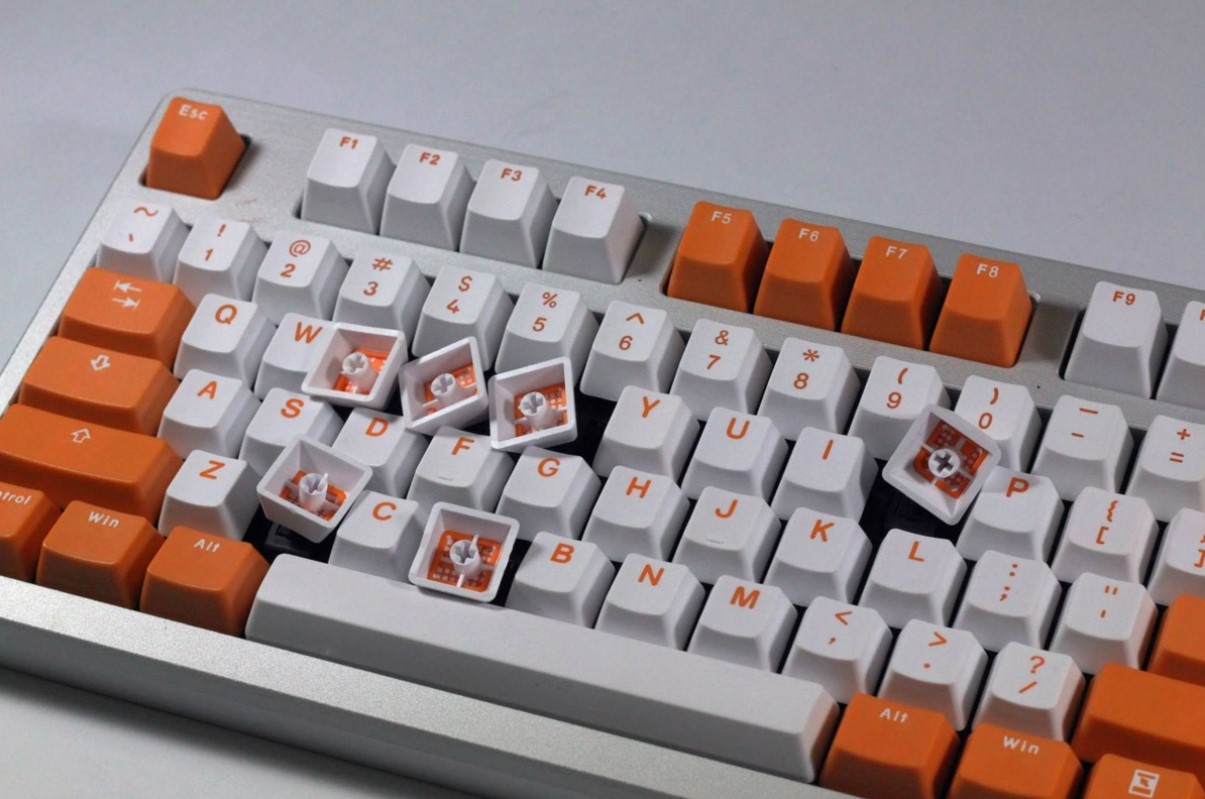What Are Low-Profile Keycaps?
What are low profile keycaps? Are they good for your typing or gaming? Discover everything about low profile keycaps in this article of Keycapscustom.com.
What Are Low-Profile Keycaps?
Low profile keycaps are a type of keyboard keycap that has a shorter height compared to traditional keycaps. They are designed to be more streamlined and ergonomic, providing a flatter profile and a shorter distance to travel when pressed.
Low profile keycaps are often found on mechanical keyboards designed for gaming or typing, where users may prefer a faster and more responsive keystroke. They can also be more comfortable to type on for extended periods, as they put less strain on the fingers and wrists.
However, it’s worth noting that low profile keycaps may not be compatible with all types of keyboards, so it’s important to check the compatibility before purchasing them. Additionally, they may not provide the same level of tactile feedback or sound as traditional keycaps, which can be a matter of personal preference.

What Are The Differences Between Low Profile And Normal Profile?
The main differences between low profile and normal profile keycaps are their height, shape, and feel.
- Height: Low profile keycaps are shorter in height compared to normal profile keycaps. They typically have a height of around 5mm to 7mm, while normal profile keycaps can have a height of up to 11mm or more. The lower height of low profile keycaps can make typing more comfortable and reduce hand fatigue.
- Shape: Low profile keycaps often have a flat or slightly curved surface with a wider surface area, which can provide a more stable typing experience. Normal profile keycaps, on the other hand, have a more curved surface with a concave shape, which can offer better tactile feedback and a more traditional typing experience.
- Feel: Low profile keycaps can provide a faster and more responsive typing experience due to their shorter travel distance and reduced key wobble. However, they may not offer the same level of tactile feedback and sound as normal profile keycaps, which can be a matter of personal preference.
Overall, the choice between low profile and normal profile keycaps depends on individual preferences, typing style, and the type of keyboard being used. Low profile keycaps are typically preferred by gamers and typists who prioritize speed and comfort, while normal profile keycaps are preferred by those who value tactile feedback and a more traditional typing experience.
Are Low Profile Keyboards Better For Gaming?
Low profile keyboards can be better for gaming, depending on individual preferences and gaming style. Here are some reasons why:
- Faster Typing Speed: Low profile keyboards typically have shorter key travel distance, which can lead to faster typing speed and response times. This can be especially useful in fast-paced games where split-second decisions can make a difference.
- Reduced Fatigue: Low profile keyboards can be more comfortable to type on for extended periods, as they put less strain on the fingers and wrists. This can be especially useful for long gaming sessions.
- Customization: Many low profile keyboards come with customizable RGB lighting and programmable keys, which can be beneficial for gamers who want to create a personalized gaming experience.
However, it’s worth noting that low profile keyboards may not be suitable for everyone. Some gamers prefer the tactile feedback and sound of traditional keyboards, which may not be as prominent in low profile keyboards. Additionally, low profile keyboards may not be as durable as traditional keyboards and may not offer the same level of key customization. Ultimately, the choice between low profile and traditional keyboards depends on individual preferences and gaming style.
Visit our website to looking for the type of keycaps that fits your keyboard. Here you can also find out our newest collection of keycaps such as Artisan keycaps, Anime keycaps, Pokemon keycaps, Backlit keycaps, etc.

